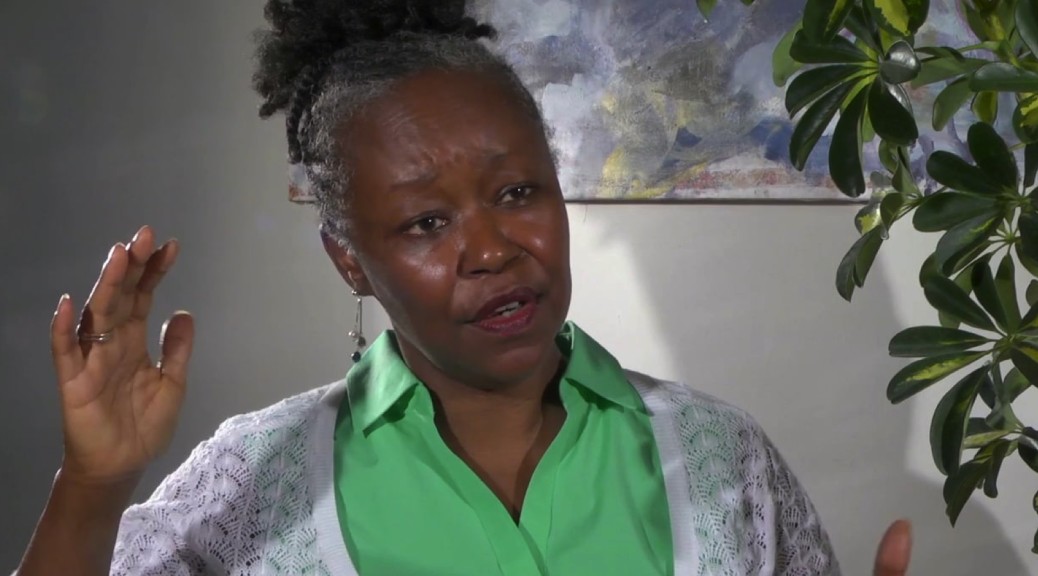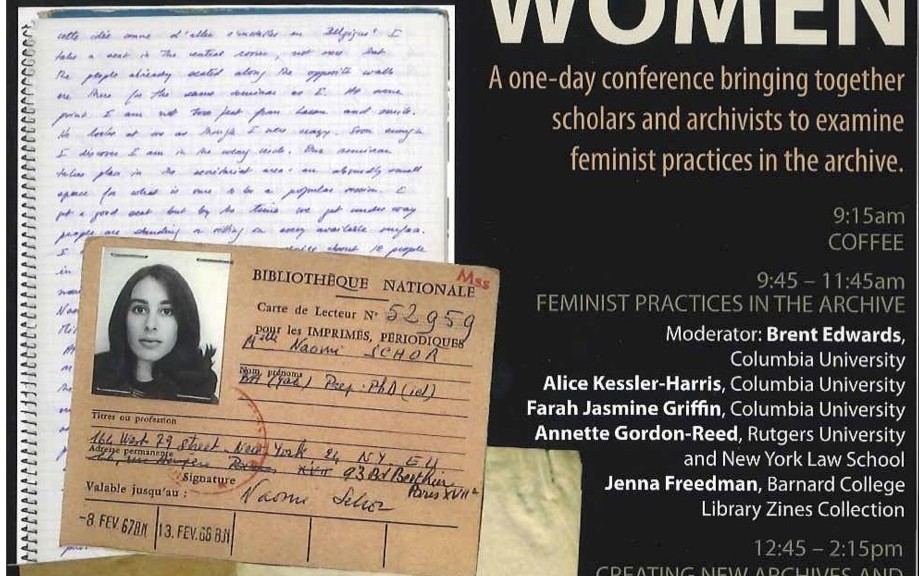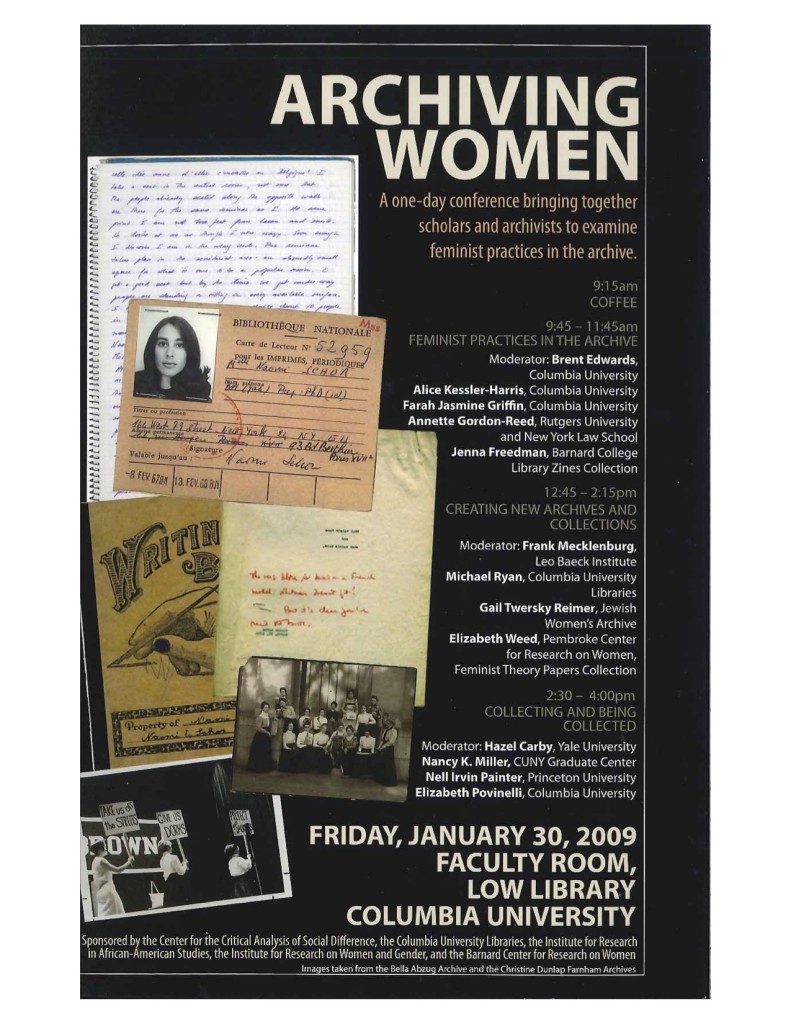FARAH GRIFFIN
William B. Ransford Professor of English and Comparative Literature and African-American Studies
I was having dinner one night with three colleagues who were historians at different institutions. Martha Jones, who had been a graduate student of Eric Foner’s here, Mia Bay, who taught at Rutgers, Barbara Savage, at University of Pennsylvania, and we were lamenting the way that the intellectual labors of Black women went ignored and under-appreciated and under-resourced. One of those laments over a bottle of wine. Then we thought, even the study of Black intellectuals, which was very much central to what IRAAS [Institute for Research in African American Studies] did, was impoverished when it came to Black women intellectuals. We decided, wouldn’t it be great to have some kind of a collaborative project where we figured out what work had already been done, and we also thought about where the voids were, and help to support scholars who were trying to do that work. So we organized a meeting, which was just a kind of information gathering meeting where we invited people who had either written histories of Black women intellectuals, biographies. Who was out there doing the work, and what did they feel like was needed?
We organized a meeting that was held at Rutgers, and then, eventually, after that meeting, we saw there was some interest and we applied for an NEH grant. A lot of work. We didn’t get it. Not a lot of the criticism, but some of the criticism was that we didn’t have enough representation of conservative intellectual women. That it wasn’t balanced. We were determined that we were going to do this project, and we’d do it on a shoestring if we had to. It wouldn’t be as big, it wouldn’t be as ambitious.
By that time, the Center for the Study of Social Difference had come up, and we presented the project to them and they funded it. What was great about their funding it is they gave us a set amount of money. IRAAS gave us money. Then we could take that to raise other money, to go to other institutions. Martha at University of Michigan, Barbara at University of Pennsylvania, Mia at Rutgers, and say, “This is the money that these Columbia centers and institutes have already given us. Can you ante up some?” All those institutions contributed to this working group, interdisciplinary, intergenerational institutions from public to private. We had people who were representative of small colleges, large universities, Black colleges, who formed this collective and really worked together as a working group on our projects and on our papers, holding several conferences.
Then we were able to use the resources that we got from the center to hold a big, international conference at the end. Because what we always wanted to do was put the work out there, but really put a call out there to say, here’s a place where you can do this kind of work. If you’re working on Black women intellectuals, you’re not working alone. We’re trying to figure this out. What does it look like? How does intellectual history look different? Who do we count as an intellectual? It’s not necessarily someone with a PhD from Oxford. Some of these women never had PhDs, but they had ideas that were important.
It was the kind of project that I just really love being a part of, because in terms of content, I learned so much. It supported my own work. It supported the work of people whose work I wanted to read. But institutionally, it did something, because we had these younger scholars who were going through the tenure process, and they were able to be mentored by senior scholars in the group, who were reading closely their work and writing letters for them. It brought the idea of intellectual history, of Black women’s intellectual history to all these campuses, graduate students. It did both work on the ground and work at the level of ideas. Institutional transformation on the ground and—
I think that’s what something like the center and IRWGS is best at doing. That what it does collectively is also transformative for a field, intellectually, but also institutionally. IRWGS has supplied leadership for the university. Jean [Howard]’s work with IRWGS, and then she’s the Vice Provost of Diversity or the chair of the English department. Alondra [Nelson] is now Dean of Social Science. That these are people who come from this small unit, and they are also the hardest working people I know.



